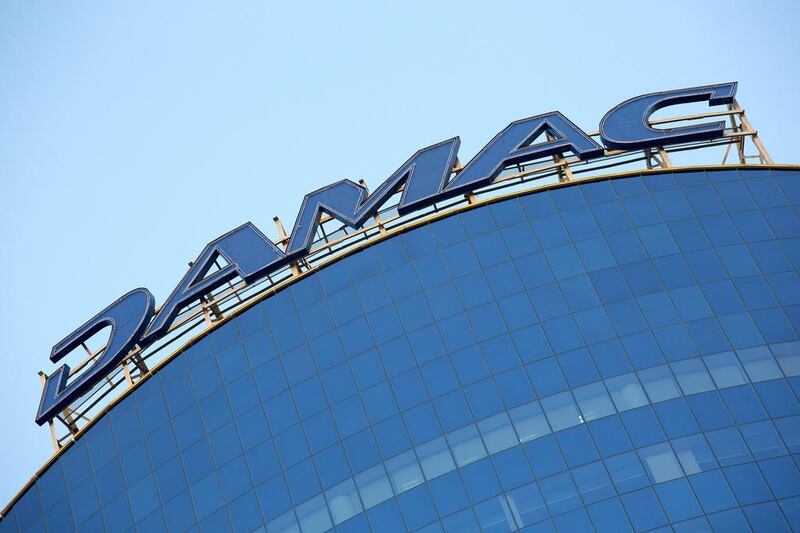The luxury property developer Damac begins trading on the London Stock Exchange (LSE) today in the largest listing by a UAE company in more than half a decade.
Advisers working on the offer said Damac’s global depositary receipts (GDR) would be priced at US$12.25 per unit – at the bottom of analysts’ valuation range.
At that price, Damac is valued at $2.65 billion, the biggest offering by a UAE firm since DP World sold 20 per cent of its equity for $4.96bn on the Nasdaq Dubai exchange in November, 2007.
A Damac GDR unit represents three shares in a holding company owned by private companies controlled by Hussain Sajwani, Damac Properties’ founder and executive chairman since 2002.
Mr Sajwani could ultimately realise $400 million on the sale of the GDRs, depending on demand after trading begins.
Investment bank advisers have been on roadshows in the United States and Europe marketing the offer in the past week.
Earlier forecasts of a much higher valuation – with one bank suggesting a capitalisation exceeding $5bn – were jettisoned because of concerns about the volatility of the Arabian Gulf’s real estate market and some uncertainties over GDR trading.
GDRs, rather than ordinary equity, are sometimes used by emerging-market companies to avoid greater overseas transparency rules for ordinary shares, and because of higher requirements for the proportion of ordinary shares that must be made available for trading.
Mr Sajwani will sell a 13.1 per cent stake in Damac via the GDRs to initially raise $348m. He will be allowed to sell a further $52m worth of GDRs in the first month of trading, depending on demand, as part of a price stabilisation process managed by the banking advisers.
The GDRs were originally intended to begin trading last week, but the advisers decided to postpone the offer until after the decision over Dubai’s bid to host Expo 2020, and because of the US Thanksgiving holidays.
“Like most of people in Dubai, Mr Sajwani was confident on the Expo bid, but there was some concern about the effect on the market and it was thought more sensible to wait until the word was official,” said one adviser.
The greatest demand for the GDRs has come from the US and Britain, but advisers say there has been some keen interest from Saudi Arabia, a key market for Damac. One adviser said the UAE had shown a smaller level of interest.
Damac is involved in major development projects in Riyadh and Jeddah, while in the UAE some 15 per cent of its sales are to Saudi nationals buying property in the Emirates. The company generates strong cash flow through its business model of offering pre-construction sales.
The developer’s market value has been talked down since early estimates of more than $5bn last month by one of its advisers, the Russian bank VTB Capital. Other advisers took a more cautious line.
Citigroup and Deutsche Bank are joint global coordinators of Damac’s GDR offer, and Samba Capital of Saudi Arabia and VTB are joint lead managers.
The offer will be the third London listing for UAE companies in the past 18 months. NMC Healthcare raised £117m (Dh702.94m) in a listing of ordinary shares last year, while another healthcare group, Al Noor, raised £124m in London this June. Both companies have experienced substantial increases in their shares’ value since listing in London.
UAE private firms are drawn to London because of local rules in the Emirates that say at least 55 per cent of a company’s shares must be listed. Many entrepreneurs who have started successful businesses do not want to put so much equity in public hands. They are also deterred from UAE listings by company law regulations that prevent them from personally realising a cash return from listing.
All of the immediate proceeds of the Damac GDR will go to Mr Sajwani, with none of the proceeds earmarked for the company.
One analyst, who did not want to be named, said: “The value has dropped, but at this level it looks like there will be a good aftermarket. Mr Sajwani risked his own capital in the company, and got them through the crisis.”
Mr Sajwani plans to be present at an official London Stock Exchange ceremony this morning to mark the commencement of trading.
fkane@thenational.ae





